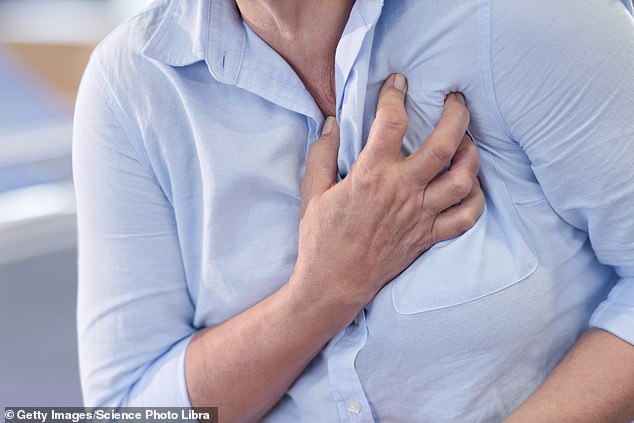Manic Monday is no longer the most dangerous time for cardiac arrest: Every day is now equally risky for Americans who are constantly stressed by ’24/7 contact’
- Most cardiac arrests occurred during the afternoon between 12pm and 6pm
- The least amount of cases took place in the early morning between 12am and 6am
- Previous studies said Mondays were the most common due to high levels of stress at the start of the work week
- But researchers say we are plugged into work-emails and messages 24/7 that there is no day when the most stressed is experienced
Early Monday mornings are no longer the most common time for cardiac arrest to occur.
A new study now says any day of the week could spell trouble for your heart.
Researchers found cardiac arrests are most commonly reported in the afternoon, between 12pm and 6pm.
Previous studies suggested that Monday was the most common day for hearts to give out, ostensibly due to high levels of stress – like the start of a work week – that trigger biological changes that put unbearable strain on the heart.
But in their new study, the team, from Cedars-Sinai Medical Center in Los Angeles, says we are now tethered to work-emails and messages 24/7 so there is no particular day or time that brings about the most stress.

A new study has found that cardiac arrest cases are most commonly reported in the afternoon between 12pm and 6pm (file image)
For the study, the team looked at more than 1,500 adult patients who experienced a sudden cardiac arrest between 2012 and 2014.
The patients, from the Oregon Sudden Unexpected Death Study, had more than 2,600 cases of sudden cardiac arrest.
Researchers found that most patients went into cardiac arrest in the afternoon, which accounted for nearly 32 percent of all cases.
About 28 percent of cases occurred in the morning (between 6am and 12pm) and around 27 percent occurred in the evening.
Just 13.9 percent of cardiac arrests occurred during the early morning, between 12am and 6am.
‘The dogma – in fact, this is everywhere, in all the textbooks about sudden cardiac arrest – [is that] the most common time period for people to have a sudden cardiac arrest is early in the morning,’ study author Dr Sumeet Chugh, medical director of the Heart Rhythm Center at Cedars Sinai Medical Center in Los Angeles, told CNN.
‘Where all previous studies had shown that Mondays were the worst day for sudden cardiac arrest, we couldn’t find that peak either,’ he said.
What the team did find was that there was a decrease on Sundays, accounting for just 11 percent of cases reported during the week.
Dr Chugh says the change in peak time might be because the public has gotten better on reporting when cardiac events are occurring.
Currently, more than 357,000 incidences of cardiac arrest occur outside of hospitals in the US each year, according to the Centers for Disease Control and Prevention.
However, between 70 and 90 percent of those cases will die before they can reach a hospital.
He also says it could be a cultural shift to a 24/7 lifestyle that leaves engaging in work-related emails or messages after the end of the work day or during non-working hours.
‘Our hypothesis is that in the last decade or two decades, we’ve really changed the way that we behave as human beings. We’ve changed the way that we work. We are constantly wired,’ Dr Chugh said.
‘I would call it an ‘always on’ existence. A lot of people are working all the time, or they’re tied to, or tethered to, a smartphone, almost every instant of the day, sometimes at night.’
